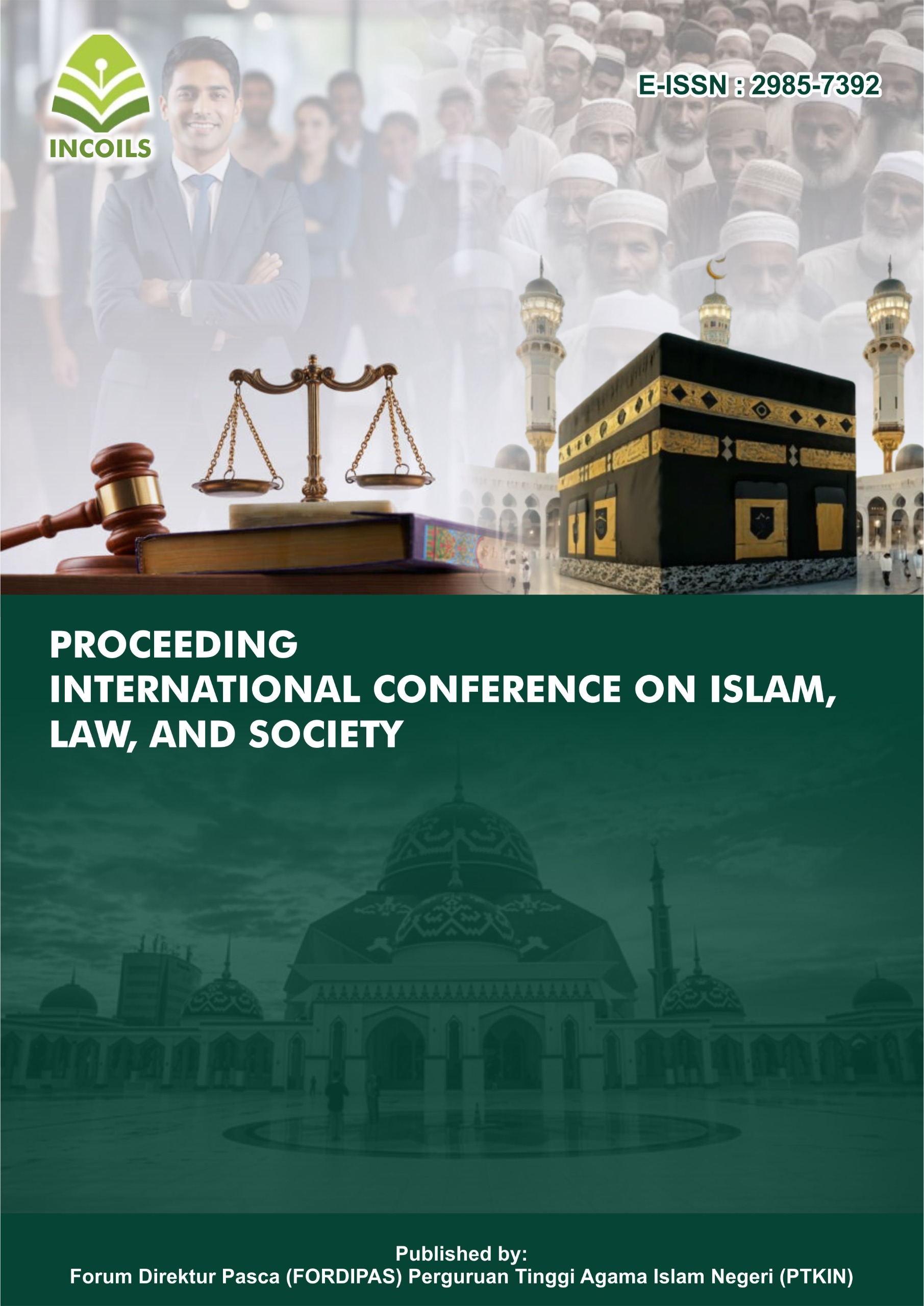SHIFTING THE MEANING OF MAHRAM FOR WOMEN IN THE IMPLEMENTATION OF HAJJ AND UMRAH
DOI:
https://doi.org/10.70062/incoils.v2i1.50Keywords:
hajj, mahram, women, umrahAbstract
Hajj and Umrah are a series of mahdah worship that has been regulated in Islamic law. Among the rules in the implementation of Hajj and Umrah there are pillars and conditions. Of the several conditions for Hajj, some scholars add the existence of a mahram for women. This means that if a woman does not have a mahram, then the obligation to perform Hajj is lost. A new phenomenon that has occurred in Saudi Arabia since 2021 allows women to perform the Hajj without a mahram. Such practices have been widely practiced in Muslim-majority countries, including Indonesia. This study discusses the opinions of fiqh scholars regarding the implementation of Hajj and Umrah for women without a mahram. The reasons for the difference of opinion and arguments. The purpose of this study is to find out and explain the opinions of fiqh scholars regarding the implementation of Hajj and Umrah for women without a mahram, and to describe the causes of differences of opinion and their respective arguments. This research is a library research (library research). The data sources used are secondary data sources, which consist of fiqh books and journals related to the problems studied. As for Technique data collection used is a literature study. After the data is collected, it is then processed and drawn conclusions so that new findings emerge. Based on the results of the study found four opinions of fiqh scholars. The Maliki school of law states that it is obligatory for women who perform Hajj and Umrah to be accompanied by a mahram. The Hanafi school allows women to perform Hajj and Umrah without a mahram provided that the distance is less than 3 days. The Shafi'i school allows women not to be accompanied by a mahram on condition that conditions are safe. The Hambali school of thought states that it is forbidden for women to perform Hajj and Umrah if there is no mahram, even though it is a condition for istitha'ah for women. The reason for the difference of opinion among scholars in this matter is due to different understandings in compromising various hadiths with the word of Allah SWT in Surah Ali Imran verse 97. From some of the opinions of these fiqh scholars, it can be understood that the implementation of Hajj and Umrah for women without a mahram is permissible. This is based on the opinion of Imam al-Shafi'i and contextual understanding of hadith, and is supported by the rules of ushul fiqh.
References
Al-Asqalany, Ibnu Hajar. Fath Al-Bari, Terjemahan. Jakarta: Putaka Imam al-Syafi’i, 2010.
Al-Bukhari, Abu Abdullah Mhammad. Sahih Bukhari. Beirut: Dar Al-Fikri, 1994.
Al-Gazhali, Abi Hamid Muhammad. Mukhtashar Ihya’ ‘Ulum al-Din. Cairo: Dar Al-Kutub Al-islamiyah, 2004.
Al-Jauziy, Ibnu Qayyim. Al-Qawaid Al-Fiqhiyah. Dar Ibn al-Qayyim, n.d.
Aljaziry, Abdurrahman. Fiqh ‘Ala Mazahibul Arba’Ah, Terjemahan. Jakarta: Darul Ulum Press, 2000.
Al-Qurtuby, Al-Bakriy. Syarh Ibn Bathâl ‘Ala Sahih al-Bukhari, al- Maktabah al-Syamilah., n.d.
Aunul. “Mahram Bagi Perempuan.” Refleksi (Jurnal Filsafat Dan Pemikiran Keislaman), 2, 15 (2016).
Maulana. Penyertaan Mahram Dalam Pelaksanaan Haji Dan Umrah. Vol. 12. 1. Palastren (Jurnal Studi Gender), 2019.
Qardawi, yusuf. Hadyu Al-Islam Fatawa Mu’ashirah, Terjemahan. 2nd ed. Jakarta: GIP, 1995.
Rahman, Kahlilul. “Urgensi Mahram Dalam Haji Dan Umrah.” Al- Fathin (Jurnal Bahasa Dan Sastra Arab, 1, 3 (2020).
Rusd, Ibnu. Bidayah Al-Mujtahid Wa Nihayah al-Muqtashîd, Terjemahan. Semarang, n.d.
Sabiq, Sayyid. Fiqh Al-Sunnah. 2. A-lQahirah: Dar al-Hadis, 2009.
Syraifuddin, Amir. Garis-Garis Besar Fikih. Jakarta: Sinar Grafika, n.d.
Zainuddin, Abdul Aziz. Fathul Mu’in, Terjemahan. Jakarta: Pustaka Azam, 2016.
Downloads
Published
How to Cite
Issue
Section
License

This work is licensed under a Creative Commons Attribution-ShareAlike 4.0 International License.







